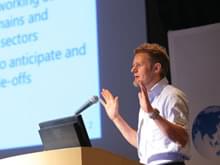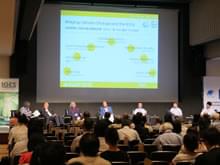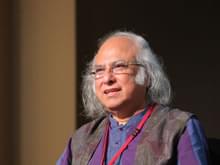

Eradicating poverty and achieving well-being for all are key objectives of the Sustainable Development Goals (SDGs), but these will not be possible in a world of escalating climate-related disasters. Similarly, avoiding catastrophic climate change hinges upon effective action in several SDGs areas, including energy. Effective climate action can work as an essential means of implementation for the SDGs, and vice versa. This means that there are strong potential synergies between these two agendas. However, realising these changes depends on choices made regarding government policies and technological systems. This session will shed light on the complex relationship between Climate Change and SDGs. It will explain where major potential synergies and/or trade-offs exist, and discuss how to expand such synergies and avoid trade-offs. The session will also illustrate how the international negotiation processes on climate change and the SDGs have progressed separately and how they envisage convergence in on-the-ground implementation.
[Keynote Speaker]
| Rintaro Tamaki, Deputy Secretary-General, The Organisation for Economic Co-operation and Development (OECD) |
[Framing Presentation]
| Stopping Climate Change Magnus Bengtsson , Principal Policy Researcher, Programme Management Office, IGES | PDF (536KB) |
| Complementarity of two processes to ensure safe operating space Satoshi Kojima , Principal Policy Researcher, Programme Management Office, IGES | PDF (483KB) |
[Speakers]
| Qazi Kholiquzzaman Ahmad, Chair, Institute of Microfinance, Bangladesh | |
| Masakazu Ichimura, Director, United Nations Centre for Alleviation of Poverty through Sustainable Agriculture (CAPSA) of ESCAP | |
| Surendra Man Shrestha, Director, United Nations Environment Programme’s International Environmental Technology Centre (UNEP-IETC) |
[Moderator]
| Peter King, Senior Policy Advisor, IGES |









| Date & Time | 29 July 2015, 9:30-10:45 | Language | English /Japanese |
|---|---|---|---|
| Venue | Room503, Pacifico Yokohama Conference Center | Session No. | P-4 |
 Summary Report
Summary Report
